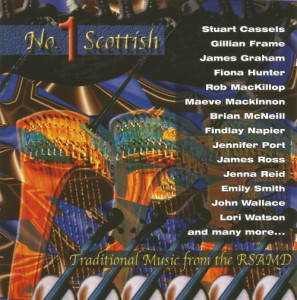 Alistair Brown wrote this review.
Alistair Brown wrote this review.
For many years now Brian McNeill has been a major force in Scottish music. He is perhaps best known as a fiddler, but that sells him short; in fact he plays fiddle, viola, mandolin, cittern, bouzouki, guitar, concertina, bass and hurdy-gurdy. He was a founding member of Battlefield Band, and many of his compositions, mostly about Scotland’s past and future, formed the core of their repertoire for many years. He is the creator of the audio-visual show “The Back of the North Wind,” about Scottish emigration to America; is a respected record producer; and is the author of two books. At Glasgow’s Celtic Connections in 2001, he was musical director of the landmark Scots Women concert, later released as a CD on Greentrax.
Given Brian’s energy and creativity, it comes as no surprise that his recent appointment as Head of Scottish Music at the Royal Scottish Academy of Music and Drama in Glasgow has quickly raised the profile of the music degree programme there in the wider musical world. No. 1 Scottish is the first recording to be produced on the RSAMD label. It features the students of the Scottish Music Department performing with or under the direction of their tutors.
However, put any notions out of your heads of school yearbooks, of end-of-year brag productions to convince proud parents that their investment is not being consumed in the Horseshoe Bar. This is a thoroughly professional release, standing proudly as a sampler of the best of Scottish traditional music as interpreted by some of Scotland’s most accomplished young performers. There is no point in commenting on the standard of musicianship. It is not an issue. Put this recording on your shelves beside Ceolbeg, Malinky, Fiddlers Bid, or Seelyhoo as another example of the exciting renaissance of traditional music in Scotland.
The selections are eclectic: there are several sets of tunes led by pipes, fiddle, or accordion, solo piano, medieval lute, a nod in the direction of the Scottish country dance band sound, Gaelic waulking and lyrical songs, the classic “Dowie Dens O Yarrow,” a haunting version of “Sailins A Weary Life” with cello and clarsach accompaniment, and a stunning new composition in Shetland style, “Da Burn O Costa,” make this a tribute to the vibrant and nurturing musical culture there.
A word to all of you who are worried about the greying of the folk scene: Stop complaining and listen to this! You’ll feel a lot better.
(Royal Scottish Academy of Music and Drama, 2004)
